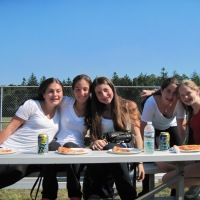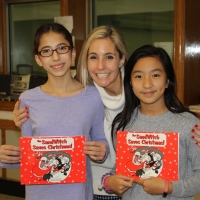People say that 2020 was a difficult year. Many of us lost heroes. Alex Trebek, Bill Withers, Kobe Bryant, and Ruth Bader Ginsberg, all died in this unusual and tumultuous year.

My siblings and I lost a great hero who occupied a singular place in all of our lives.
I am from a family of five, four brothers and a youngest sister.
In our lives, when you were proud of something, if you made a team, got a good grade, won an award; my mom was the first one you wanted to tell about this. It was to my mom that you brought your report card, your certificate, or your trophy.
When you’d messed up, or needed to be helped out of a jam, it was invariably my dad who got involved.
A few examples:
When I was younger, I was a very poor reader, and I guess consequently a bad speller too. I was in first or second grade, maybe third grade, and I got a “D” on a spelling test. I don’t know what calculus the nun who was my teacher at St. Vincent Ferrer used to come up with a grade of “D”. I’m pretty sure they didn’t use standards-based grading. While, as a progressive 21st Century educator, I may be having trouble making sense of this grade, my mother suffered from no such equivocation. A grade of “D” on a test was not acceptable to her. Mary Gately may have read a draft of the Battle Hymn of the Tiger Mom and taken it as a handbook for 1960’s academic parenting. She expected us to get good grades in school. This was 1968. Nobody had anticipated spellcheck or Grammarly, so my deficits as a speller certainly reflected poorly on my family.
I’m not sure how they divided parenting duties when it came to school failures, but as far as my spelling grade, mom said that dad was going to handle it. My mom was a smart cookie. She probably realized that with my dad working late and then going to a meeting afterwards, the sword of Damocles hanging over my head as I waited for him to return home would be punishment enough for my poor test grade. And it was. Add to that, my brother Marty passed the time telling me how much I was going to “get it” when my dad got home.
It was late when my dad eventually arrived. When I heard the key in the door, I ran upstairs and hid under the bed. Maybe my mom told him where I was, but I have long suspected Marty tipped him off. I picture him whispering in dad’s ear when he had one foot in the door, “He’s upstairs hiding under the bed.”
From my warren I heard my dad say, “Donald come down here, I want to talk to you about your test.”
I’d spent the day imagining all the consequences my father was going to visit upon me for a poor test grade, but when I crept down the stairs, my dad put his hand on my shoulder and asked me just one question that I’d never anticipated, “Do you know how to correctly spell all the words you got wrong on this test?”
I admitted that I didn’t.
My dad said, “Well that’s the point Donald. You can fail, but you have to learn from your mistakes.”
Nobody worked harder than my dad. He was a splicer for the telephone company. That day, he had probably put in a 10 hour day and then attended a meeting that took two hours. But he sat there at the dining room table with me until I knew how to correctly spell all the words I got wrong on that test. It took me almost an hour to correctly spell the word FRIEND. He had me say it again and again: “Friend – F-R-I-E-N-D – friend.” Many years have passed but I remember the cadence of those six letters and the feeling of my dad’s hand on my shoulder, so much later than my usual bedtime, as I finally mastered the spelling of this challenging word.
My dad taught us to never give up, that life is about failure sometimes. But it’s mostly about hard work.





Fast forward about six years. I’m 13 years old. While riding my skateboard down Avenue H in Brooklyn with my friend Brian, a car, speeding to pass another car, hit me. I go over the hood of the car and my arm hooks in the side view mirror on my way to the ground. My elbow was broken and the left side of my body was one huge bruise. Somebody called an ambulance and Brian said, “I’ll run to your house to tell your parents.” I told him, “See if you can tell my dad without my mom knowing, I don’t think she can take it.”
As far as I know, the message got relayed through one of my brothers to my dad who came to Avenue H right away. My mom found out soon enough but he accompanied me in the ambulance to Brooklyn’s Kings County Hospital. I was pretty calm laying on the street and held it together when they put me on the stretcher to get in an ambulance; maybe I was in shock, but when my dad and I were alone in the back of the ambulance, I couldn’t stop crying. I had made the mistake of looking down at my arm. I cried all the way to the hospital, my dad’s hand was on my shoulder the whole way, telling me there’s nothing to be afraid of, everything is going to be okay.
I don’t know how well you know Kings County Hospital in 1973, but when we got to the emergency room, a 13-year-old kid who broke his arm riding a skateboard was pretty low priority. They parked my stretcher in the hallway as a steady stream of gunshot wounds and stabbing victims came through for treatment. Everyone was very nice to me but it took us a long time to be seen by a doctor. All the while, my dad kept his hand on my shoulder and told me everything was going to be okay. But I kept crying. At one point, he said, “OK Donald, stop crying now. You don’t see the guys who got shot crying do you? You’re getting everybody upset.”
And I stopped crying.
My dad taught us that it’s okay to show your emotions, but sometimes you need to be brave too.





Because I was one of four teenage boys in our family, I couldn’t be satisfied giving my mom a peaceful night’s sleep*; three years later, a senior in high school with a “snow day”, on a dare, I rode a sled into a tree on a ridiculously steep hill in Brooklyn’s Prospect Park, putting myself in an ambulance once again. For over two weeks I lay in a hospital bed while severe contusions to my internal organs resolved themselves. I studied the color of my pee like a Druid priest, hoping for the healthy color that would prompt the doctors to send me home. Four times a day a nurse would check on this, shaking a test tube and studying the hue of my micturate. I’d ask, “What color is it supposed to be?” The persistent response, “Not this color.” It was beyond boring.
The only thing that kept me sane was the entertaining company of the guy with whom I shared my hospital room. My roommate in the hospital, Rich, was a carpenter who worked for the Mass Transit Authority (MTA), the New York City subway system. While there wasn’t anything inherently fascinating to me about carpentry, there was a subject upon which Rich could orate for hours, a topic about which I have had a lifelong niche interest, RATS. Toiling for years in the tunnels of all the subway lines, Rich was an expert on subway rats, the quixotic genre of “rat” for a seventeen year old high school kid. By his account, he’d seen rats the size of small children down there and he never held back in his descriptions of them, and by that I mean, I never grew tired of asking him to tell me stories about the rats he’d encountered in the subway tunnels of Brooklyn and Manhattan.
While in the hospital, I’d be visited by my mom and my siblings most evenings, but every day, my dad would come to see me at lunchtime. He drove the telephone company truck so he could park wherever he needed to. He’d bring coffees and plain crullers. One for me and one for him, sometimes he’d also bring for Rich. The fact that I cannot call to mind a single thing we talked about those still winter afternoons may have to do with the many years that have passed, but my memory for such things is fairly competent, it’s more likely we just hung out together drinking coffee. I do recall that he’d put his hand on my shoulder and reassure me that I’d get to go home soon.
I don’t remember why Rich was in the hospital, but he left before I did. When he was waiting for his wife to collect him he said to me, “You know Don, your dad is a terrific guy. He loves you so much.”
I very much appreciated him saying this but I asked him, “How do you know this. You’ve only known him a little over a week.”
He said, “You can just tell.”
And since my dad died a week ago, that’s the same thing I’ve heard on Facebook and on the phone and in conversations with countless people. “Your dad was a terrific guy.”
And it’s true, he was.
My mom probably told us every single day of our lives that she loved us.
BUT my dad showed us that he loved us every single chance he got…
These are my stories but my siblings each have similar anecdotes that illustrate the heroic aspects of my dad’s character. Perhaps it was just part of his chemistry, or maybe because he’d spent the better part of his life earning his sobriety as an active and pious constituent of the organization dedicated to the community of those battling alcoholism, Donald Gately Sr. had an intimate understanding of human frailty and vulnerability. When you had an armload of problems and challenges of your own making, my dad was the person to whom you brought them. He recognized the essential truth that even the best among us often forget: we are not our mistakes. We are better than our worst days. There is no stigma in weakness, we should be ashamed only when we do nothing to overcome our mistakes.
These are all things I learned from my dad. We will honor his memory by living these truths in our own lives every single day.
********************************
* My brother Matt would say I wrapped myself around that tree because I couldn’t bear not occupying the center of my family’s attention.



Sending our condolences 🌷and our love to you and your entire family. Your Dad was a wonderful man. The Freedmans
On Thu, Dec 31, 2020 at 11:48 AM In the middle of learning – by Donald Gately Ed.D wrote:
> dfgately posted: ” People say that 2020 was a difficult year. Many of us > lost heroes. Alex Trebek, Bill Withers, Kobe Bryant, and Ruth Bader > Ginsberg, all died in this unusual and tumultuous year. My siblings and I > lost a great hero who occupied a singul” >